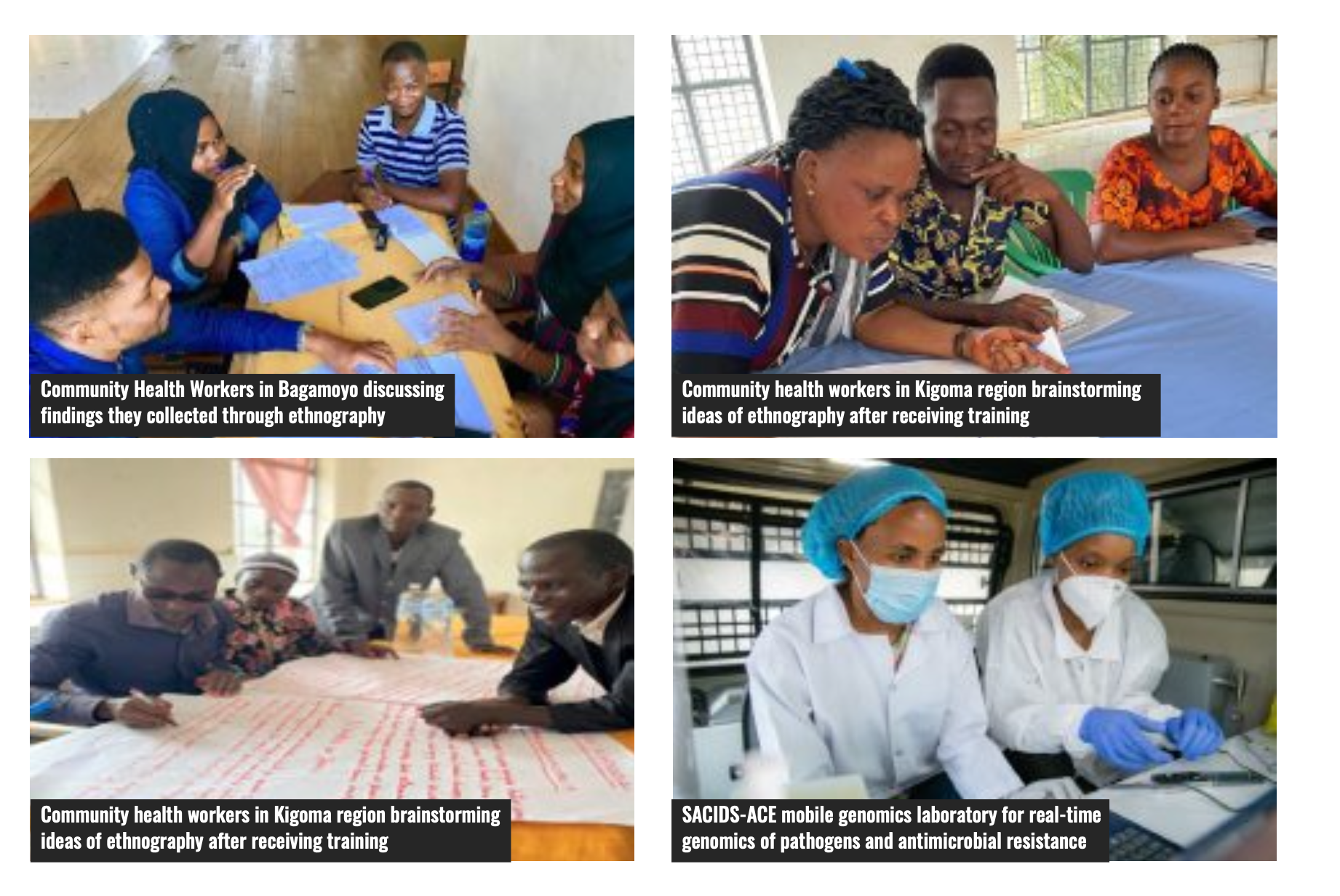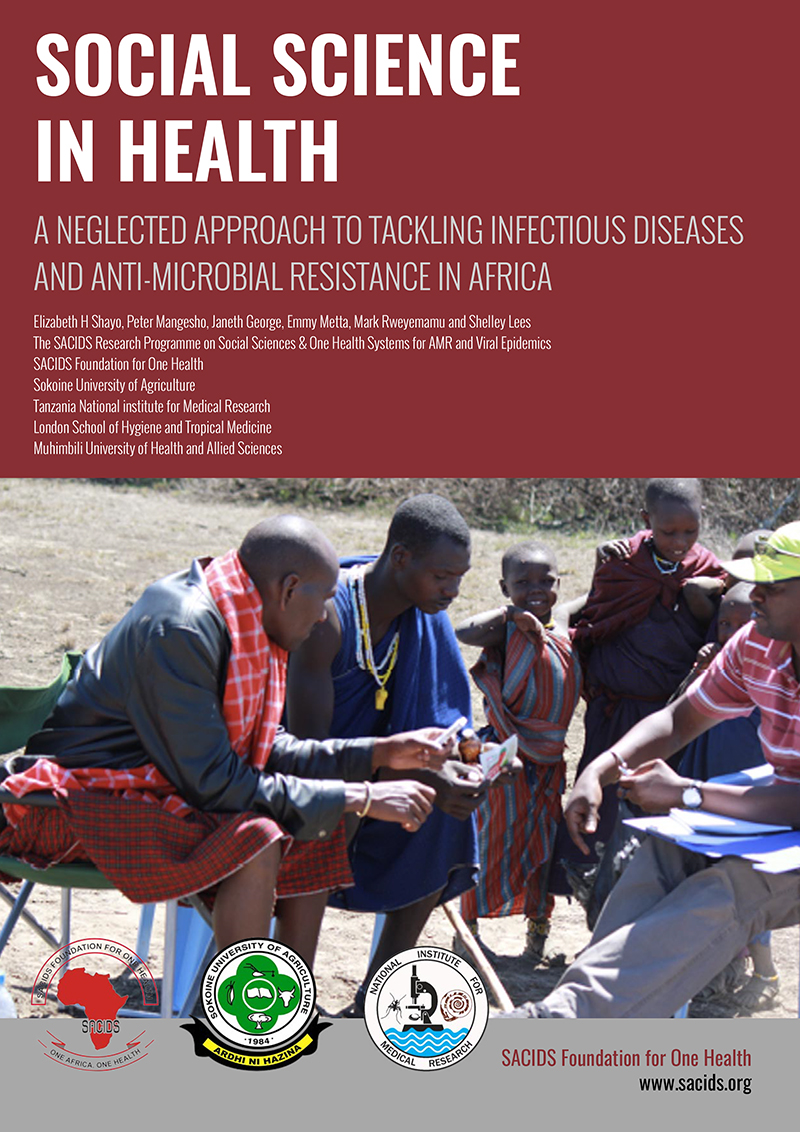How social sciences are invisible when addressing infectious disease epidemics and Anti Microbial Resistance
It has been recognized that diseases are not exclusively determined by biological factors but are also socially constructed. Expertise outside traditional biomedical and epidemiological disciplines are needed in order to enhance responsiveness and inclusiveness in the interventions to address them [1, 2, 3]. The biggest challenge institutions face in coordinating emergency responses is the lack of attention paid to contextual factors related to epidemics and their root causes. To effectively tackle epidemic diseases, there is a need to apply social science approaches that will facilitate an understanding of the social and contextual determinants of disease transmission.
Social science in health plays a significant role in understanding the factors that contribute to the emergence and spread of antimicrobial resistance (AMR) in the context of One Health. It entails a holistic engagement with social, cultural, historical, economic, and political factors with a particular focus on the way people (individuals, families, communities, healthcare workers, local government, humanitarian responders and others) interact with animals and their environment, experience, engage and negotiate their circumstances.
In the midst of the emerging and re-emerging infectious disease epidemics and AMR, concerted efforts are required to control them to minimize their impact on health, food security and livelihoods. Social and medical anthropologists can devote themselves to understanding the lay perspectives of communities and their response to mitigation measures. Such understanding aids the design of culturally appropriate interventions that are likely to be accepted by communities. For example, during the COVID-19, it was realized how caring for the sick, burial ceremonies and the accompanied practices in managing the dead bodies contributed to the transmission of the virus [4]. Specific traditional rituals related to corpse (e.g. cleansing, close relatives sleeping with corpse, etc.) have continued affecting the pandemic control measures as it was observed during COVID-19. Consumptions of wild meat from baboons, bats and the dead animals have both precipitated the epidemic occurrence in the region. Additionally, gender roles, power structures and power relations have continued placing women and children at a vulnerable positions to infections even deaths. These practices in the study countries are rampant and are influenced by the culture that affects the health-seeking behaviour and how communities respond to disease outbreaks as decision-making processes of when, where, who and how to seek care, including financial resources, have continued remaining at the hand of men. Political and religious influence in recent years have featured to be the important determinant influencing the uptake of interventions as we have learnt during COVID-19 on the use of masks and vaccines uptake.
Integration of social sciences in addressing infectious diseases, therefore, helps to identify risk practices fueling the transmission with a view to contributing to a broader understanding of human-human, animal-human and animal-human-environment interactions and vice versa. A social anthropological study among pastoralist communities living in a wildlife interface revealed how risky consumption of animal products was embedded in social and cultural norms aimed at maintaining specific cultural functions including social cohesion and rites of passage, among others. The study highlighted the need for interventions to consider wider social, cultural and economic set up in the community [5].
It is also important to note that in the contexts of heightened uncertainty and anxiety, rumours can spread more rapidly and can have complex effects on social behaviour and therefore on transmission dynamics and outbreak interventions. As social scientists have pointed out across different epidemics, rumours also offer important insights into shared anxieties, mistrust, and political and economic realities underpinning community experiences of an outbreak [6-8]. Thus, taking rumours seriously and engaging with communities directly is a crucial entry point for developing context-sensitive approaches that are responsive to local needs.
Integrating social sciences in epidemic preparedness and control involves incorporating a multi-disciplinary approach that considers the social and cultural context of the outbreak. This can include understanding how the community perceives and responds to the epidemic, as well as identifying potential risk factors and vulnerabilities. To date though, integration of social science in epidemic preparedness and control has remained inadequate, fragmented, and underfunded [9]. As a result, efforts undertaken to prevent and contain the epidemics by responders face challenges in the timely notification, reporting and case management and prevention activities.
Disease containment has been limited in many contexts due to poor strategies in addressing the social, political, historical and economic factors present in these contexts. Vulnerable women, people with disability and children have repeatedly been negatively impacted by the epidemics due to poor preparedness strategies that are inclusive to address all groups. It is, therefore, imperative to integrate social science research into epidemic preparedness, response and recovery to address the broad range of issues that can lead to improvement in people’s health, food security and livelihoods and mitigate AMR in humans, animals, and the environment.
A One Health social science approach utilizing anthropological theory and methods can contribute to a broader understanding of human-human, animal-human and human-environment interactions [10]. For example, this approach can show how individuals interact with and respond to the environment around them and how these interactions affect society and the environment as a whole.
Further, using a gender lens to address infectious diseases and AMR involves considering the ways in which gender roles, norms, and relations affect the control strategies and the emergence and spread of resistance [11]. Women, girls, and vulnerable groups have remained more affected because of the existing inequalities and poverty. It is therefore important to pay particular attention to gender-focused research and develop interventions to ensure equitable access to preventive and treatment services.

Social sciences approaches to infectious diseases and AMR control
Several approaches are being used including Citizen Social Science nested with digital technology that are intended to ensure local oversight and recognize the social and community aspects of epidemics that can support different elements of emergency response including capturing of rumours. It facilitates a better understanding of how the consumption of information from different sources influences beliefs, perceptions, and behaviours in relation to epidemic response measures and AMR. Generally, Citizen Social Science involves engaging citizens in the design or conduct of social research, including engagement in research processes such as data collection, analysis and dissemination, and monitor the impact of the research. It facilitates bringing up the community voice upfront from the voiceless, marginalized and vulnerable community and developing their our contextualized interventions [12].
Example of the use of citizen social science through conducting simple ethnography
Using a social sciences approach, the establishment of the networks and active engagement of the community is crucial which can be enforced by the existing structures with clear linkages between community members, community health workers, community leaders and health care workers in the health facilities. Through SACIDS with One Health Approach, social sciences is linked to its programmatic areas of infectious diseases, AMR and data science. Prior to the establishment of the One Health Social Science Programme under SACIDS, some sociological studies on infectious diseases and AMR were implemented under previous programmes [5, 13-15]. We are thus building up on that initial experience to strengthen the broader application and integration of the social sciences following the increase of our human capacity and smart collaborations.
A simple community ethnographic study through the use of community health workers documented beliefs, rumors, and discussions related to COVID-19 and vaccine deployment. After receiving training, Community Health Workers visited different areas within their localities to observe, listen and document rumors on beliefs, (mis)information, feelings/emotions related to COVID-19 and vaccines. The findings revealed concerns amongst community members on the safety and efficacy of COVID-19 vaccines. Decreased fertility rate was also a concern as they had heard that vaccines were intended to decrease the population in Tanzania. Contradictory statements provided by political and religious leaders were said to bring more confusion to the community. Appreciation of the vaccines in Tanzania changed when the new President was vaccinated publicly (Elizabeth H Shayo, Mark Merchant and Shelley Lees).
The inadequate attention to social sciences has made it difficult to establish the networks, rapid tools, and systems/approaches required to support the collection of good quality social scientific data timely. To this end, SACIDS has defined One Health as ‘a collaborative effort between natural and social scientists to advance the understanding of interactions between humans, animals, and their environment in the endemic settings of southern Africa’ with its vision of protecting society from devastating infectious diseases affecting humans, animals and ecosystems products (i.e., crop, fruit, and ornamental), thereby promoting livelihoods, socio-economic development and the environment [16]. The definition highlights the relevancy of strengthening one health social sciences, the discipline that was minimally considered as useful in addressing infectious diseases and AMR.
In conclusion, we view social science in health as a means to support the humanization of epidemic response and AMR efforts that generate a strong ethical alliance with local populations and health systems.


